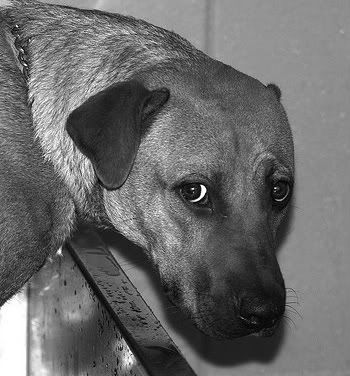Are you making your pet miserable?
But more importantly, would you know if your behavior and actions are making your pet miserable?
Most people are not able to identify if their actions are making their animals miserable and often miss what those same animals are communicating.
I recently had an interesting discussion with someone I’ve know for many, many years.
In the past, she always had quite a few animals but they were happy and well taken care of.
She attended many of my classes but admitted that she was “willfully disobedient” and so did not follow my directives.
Funny, I though she never listened or learned–because in my book, you come to pet parenting school to learn how to keep your pets healthier, happier, and better behaved.
What that taught me was that despite gaining the knowledge–she simply didn’t want to know.
Fast forward to today and she argues with me about how her insane amount of animals doesn’t make a difference.
She insists that her pets are well taken care of…in her book that is.
In my book, once you get past a certain number of pets you simply cannot care for them properly.
You see, the reality is this:
If you cannot find the time to groom, exercise and give your animals quality time and attention–you are not doing a good job as a pet parent.
Now, in her case, the animals are well fed but they certainly are not well groomed nor can she get an animal to the veterinarian in a timely manner because the finances are just not there.
She has too many animals to take care of, cannot physically find the time to do it, and does not have the finances to provide for all their needs at any given time.
And if the animal control department ever discovers her location (she is in an unincorporated area) she is going to be in serious trouble–with fines and confiscation the likely outcomes.
Now, behaviorally the animals are actually pretty well adjusted because she is home all the time and rotates the dogs during her outings but I think pets need more than that.
Also, the house stinks and the dander, dust and toileting accidents are far from what I consider healthy living patterns for animals or humans.
So let’s look at one of her “simple” errors.
She chooses to feed her animals at the same time every day.
Why is this a bad thing?
This type of schedule tends to habituate animals and causes stress in a number of ways.
First, if the feeding is delayed, the animals act up.
If they act up and are then fed–it reinforces the behavior.
Next, it is stressful for them if a feeding is missed because they have been trained to a time based feeding activity.
Ever see animals pace at the zoo near feeding time?
It is the same thing.
If animals are fed at the same time and place, the stress builds up in their anticipation of the feeding.
Why create a problem when you can avoid one?
Anyway, my question is really this, are you making your pet miserable because of your actions and desires–and would you know it?
She certainly is–but argues that her pets are much better off than most animals.
But does that make it okay?
Okay, you know my opinion, you tell me what you think in the comments.
Photo Credit: Homer4K



